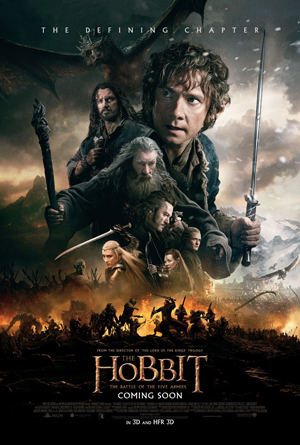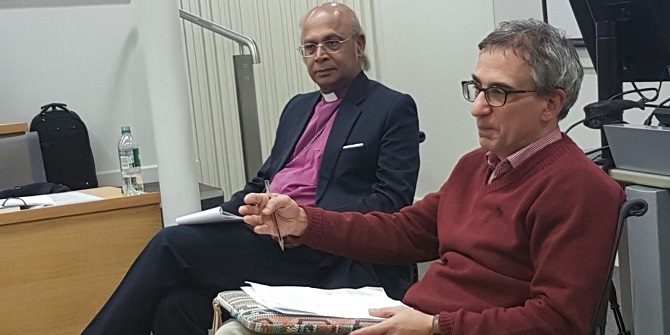A team of researchers from 46 countries, including LSE’s Shakuntala Banaji, are gathering as many survey responses as possible from people who have seen The Hobbit films – whatever they thought of them. In particular, the team are keen to hear from film ethusiasts and cinema-goers in South Asia.
The World Hobbit Project has been launched by a group of academics who want to find out how The Hobbit trilogy is understood and judged by different groups and communities, in different parts of the world.
 What do you enjoy, and what disappoints you? Who is your favourite character, and why? What do you think of the films’ special digital features? Or the fact it is a big budget Hollywood production? How do the films compare with The Lord of the Rings? What difference does it make if you have read the book? Do a viewer’s age, sex, wealth, or country matter, and how? What relevance does liking or disliking The Hobbit have?
What do you enjoy, and what disappoints you? Who is your favourite character, and why? What do you think of the films’ special digital features? Or the fact it is a big budget Hollywood production? How do the films compare with The Lord of the Rings? What difference does it make if you have read the book? Do a viewer’s age, sex, wealth, or country matter, and how? What relevance does liking or disliking The Hobbit have?
Through these questions, the team hope to contribute to some broader debates about issues such as the dominance of Hollywood. They also want to see how local cultures in different regions might affect how people judge films like this. But it is hard to get good evidence to test different ideas on these. The research builds on a previous project which explored responses to The Lord of the Rings films, conducted in 2003-4. That project offered great insight into what ‘fantasy’ means to people in different parts of the world, and how they used it to add to their lives. But there were a lot of questions that weren’t answered, and new questions have emerged since.
The World Hobbit Project is the first ever collaboration on this scale and it is hoped that this experiment in international teamwork will help advance all fields of research. The research is designed so it can be conducted entirely online, and shared via social media.
The survey will be closing soon. The team will then post updates to the project website with findings as the analysis progresses. Eventually, the project’s entire database will be made freely available to other researchers.
So get involved! Take the questionnaire – available in over 30 languages, including Hindi and Bengali – and share it with your friends.
Find out more about The World Hobbit Project here.
The project is not connected in any way with New Line Cinema or Peter Jackson.
Note: This article gives the views of the author, and not the position of the India at LSE blog, nor of the London School of Economics. Please read our comments policy before posting.








It was an absolute pleasure for me to assist Dr. Banaji on the project. We have promoted the question online on Facebook and twitter and reached out to a number of youth organisations and media houses in India. The project in itself is a landmark and we strongly encourage all of you to fill in the questionnaire and contribute towards its success.